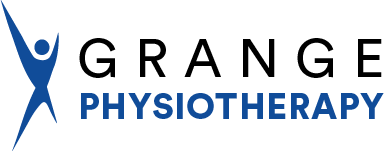Arthritis Fact Sheet

Arthritis is a major cause of disability and handicap in Australia affecting people of all ages and walks of life. Arthritis is not a single condition. There are over 150 kinds of arthritis, all of which affect one or more joints in the body. The most common types of arthritis are osteoarthritis (OA), rheumatoid arthritis (RA), fibromyalgia, lupus, and gout, which account for 90% of all arthritis cases.
Arthritis is often misinterpreted as simply a disease that affects elderly people, when in fact 60% of those who are diagnosed with arthritis are between the ages of 15 – 60 years. One in one thousand children are also diagnosed with juvenile arthritis, while it is estimated that three in every thousand children live with the condition but remain undiagnosed.
The word arthritis comes from Greek: arth- = joint and –itis = inflammation. So, arthritis literally means inflammation of the joint.
How Common is Arthritis?
Arthritis affects 3.4 million Australians, 16.7% of the population. Of the proportion of Australians affected, 60.4% are women. 60% of all people living with arthritis are of working age.
What Causes Arthritis?
There is no one single cause or list of causes for arthritis. This is due to the fact that there are over 150 different types of arthritis, and often several factors contribute to an individual developing this common problem.
Different Types of Arthritis
The disease also can affect other parts of the body. Arthritis causes pain, loss of movement and sometimes swelling. Some types of arthritis are:
Osteoarthritis, a degenerative joint disease in which the cartilage that covers the ends of bones in the joint deteriorates, causing pain and loss of movement as bone begins to rub against bone. It is the most prevalent form of arthritis.
Rheumatoid arthritis, an autoimmune disease in which the joint lining becomes inflamed as part of the body’s immune system activity. Rheumatoid arthritis is one of the most serious and disabling types, affecting mostly women.
Gout, which affects mostly men. It is usually the result of a defect in body chemistry. This painful condition most often attacks small joints, especially the big toe. Fortunately, gout almost always can be completely controlled with medication and changes in diet.
Ankylosing spondylitis, a type of arthritis that affects the spine. As a result of inflammation, the bones of the spine grow together.
Juvenile arthritis, a general term for all types of arthritis that occur in children. Children may develop juvenile rheumatoid arthritis or childhood forms of lupus, ankylosing spondylitis or other types of arthritis.
The systemic lupus erythematosus (lupus), a serious disorder that can inflame and damage joints and other connective tissues throughout the body.
Scleroderma, a disease of the body’s connective tissue that causes a thickening and hardening of the skin.
Fibromyalgia, in which widespread pain affects the muscles and attachments to the bone. It affects mostly women.
Preventing Arthritis
As the specific causes of the different types of arthritis remain unclear, it is difficult to say what may assist in the prevention of the development of arthritis. However, listed below are a few steps that may be beneficial in reducing the effects of arthritis.
- Maintain appropriate weight.
- Protect joints from injuries and overuse.
- Regularly exercise to maintain healthy bones, muscles, and joints. Obviously, regular Physiotherapy care is of benefit too, ensuring an optimal spinal/joint range of movement and flexibility.
- Eat a healthy diet as nutrients are vital for joint health.
- Hydrate your body. Water makes up 70 percent of the cartilage in joints and plays a major role in the lubrication and shock absorbing properties of healthy joints.
